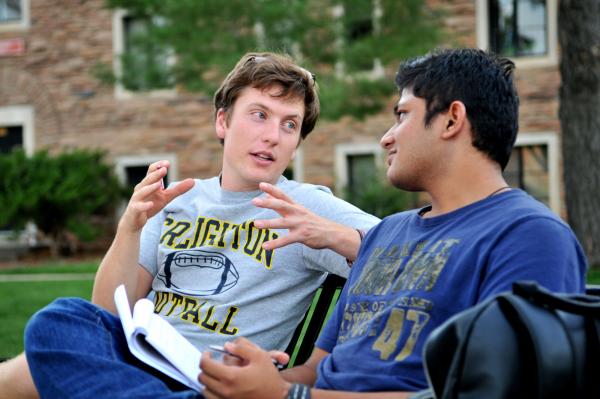Being a college student is a privilege; the opportunity to surround yourself with smart, driven and like-minded individuals is an incredible, once-in-a-lifetime experience. A college campus offers an absurd amount of academic resources through its professors, libraries and archives. One privilege that is often overlooked, though, is the privilege to be offended.
Regardless of origin or upbringing, all students grow up in a bubble, to some extent. Some may be wealthy, while others are poor. Some may have grown up in a loving and supportive household, while others may have had to overcome great adversity at home. No matter the upbringing, even the most worldly of students have been raised with a certain set of ideals and predetermined beliefs about the mechanics of the planet. Families, neighborhoods and communities all contribute to setting the lenses through which young adults see the world.
Unless you choose to live in the same house, in the same town and with the same people all your life, at some point, the narrow worldview that you grew up with will be broadened. Reality will take your naïve preconceptions and shove them where the sun doesn’t shine, and as you can imagine, such an experience will surely be a painful one.

This is where the privilege of college comes into play, though. College gives you the opportunity and the privilege to experience new views in an academic setting, free from the consequences of life. With even the smallest of campuses supporting student bodies that number in the thousands, university life is home to a plethora of opposing views. It is therefore only a matter of time before you run into someone whose views offend you.
Before I go any further, I want to clarify what I mean by “someone who offends you.” In this context, I am not referring to douches, dickheads or asswipes. I am not referring to people who are going out of their way to be annoying, offensive or mean. Those people can screw off; they are of no use to you, nor anyone for that matter.
There’s a different kind of offensive person out there that can serve an incredibly useful purpose in your life, the type of person who truly sees the world differently. This person is not trying to ruin your day when they say what they say; instead, they are simply explaining the world as they see it through their eyes.
In these situations, I urge you to take a breath. Others’ beliefs may piss you off, and you may think they are the dumbest thing on planet Earth, but before you break out the can of whoop-ass and beat them to a pulp, give their ideas a chance. If they are being courteous, cultured and professional about the conveyance of their ideas, try to see their side.
After you mull it over for a bit, their ideas may still be offensive and stupid as fuck. Who knows, maybe they grew up in a backwater town where racism is cool. In this case, and others of its ilk, feel free to shred their moral compass beyond recognition.
But, for the most part, you can only benefit from ideas that clash with your own. The only way to test the merits of your moral compass is to run the gauntlet with it. Subject yourself to opposing views whenever possible. If you see a talk on a subject that offends you, don’t protest it; attend it. See what the other side has to say. To do so will only make you a stronger person. And, if your views can’t hold up to conflict, they were not worth hanging onto to begin with.
For this reason, it’s extraordinarily important that colleges and universities across the nation invite controversial speakers and figures to their campuses. Such individuals will bring opposing views to the forefront, and allow students to confront and handle views that differ from their own.
The benefit to bringing such controversial ideas to light on a campus is that there can be mediation and overarching control over the way that the discussion is held. Whereas, if such a clash were to happen in the general public, the chances of intolerance, hateful actions and violence would be higher. Holding such events amongst the student body with faculty standing by, though, could lead to a healthy exchange of opposing views.
Even views that are outright hateful, while they should in no way be given the legitimacy of a platform, should certainly be presented in some way. How can you expect students to fight hate, bigotry and ignorance if they have never seen it rear its ugly head? Students must be able to identify hateful rhetoric. They must be able to comprehend and understand why and how they originate as well as how to negate them.
I implore America’s college students not to go out of their way to avoid offensive ideas. I ask that students be willing to expand their worldviews and test the merit of their ideas against those that oppose them. Seek out individuals who possess different stances, and try to understand why they stand where they do.
Examine your own ideals for flaws and impurities, and look for light and merit in arguments that may at first offend you. After all, being offended in a relatively safe and controlled environment is one of the most underrated privileges offered in college, and it is one all students should take advantage of.

















